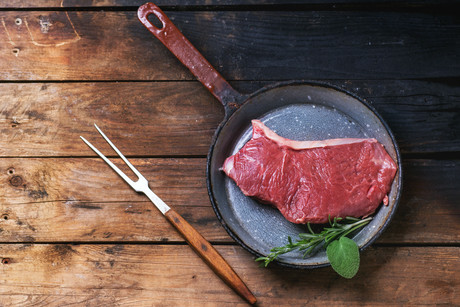The value of Australia's red meat industry

Global red meat demand is projected to grow between 1–2%, and as the world’s leading exporter of lamb, Australia is well positioned to capitalise on this growth.
The State of the Industry 2018 report, developed by Meat & Livestock Australia (MLA), looked at Australia’s meat and livestock industry, including consumption, production, imports and exports. It highlighted the key economic and community significance of the industry, and its potential to grow in the future.
Australia is a key player in the global export market, with the report revealing it was the third-largest exporter of beef in 2017, the largest exporter of sheepmeat in 2017 and the largest exporter of goatmeat in 2016. Its sheepmeat exports are particularly positive considering it only represented 6% of the global sheep flock.
Australia also exported 867,056 live cattle, 1.9 million live sheep and 12,245 goats, which Independent Chair of the Red Meat Advisory Council Don Mackay said “represents around $13.3 billion in export earnings”.
Mackay noted the importance of the red meat industry in terms of the nation’s workforce, employing 438,100 Australians directly and indirectly, supporting 82,500 businesses and generating $65 billion in turnover.
“90% of these jobs are regionally and rurally based; and our combined workforce accounts for 4% of total industry employment in this country,” he said.
The report stated that over the last two decades, total global consumption increased at an average rate of 2% per year for sheepmeat, 1% for beef, 4% for poultry and 2% for pork. There is a high demand both nationally and internationally, and Mackay explained, “What we don’t export, we eat. Australians are eating three times as much beef and five times the global average of sheepmeat.”
While all of these figures suggest the red meat industry remains strong in Australia, good policy that supports growth is needed in order for this success to continue. Investing in the nation’s people and land, and opening up markets would be an important step, according to Mackay.
“Our industry requires $600 billion in additional investment by 2050 according to ANZ; yet we are the fourth most limited country globally in terms of impediments to attracting foreign investment.
“National impediments to foreign investment in Australian agriculture have doubled since 2010.
“The industry is continuing to benefit from free trade agreements in major markets of Korea, Japan and China, but our annual negative impact value of technical barriers to trade remains at a gigantic $3.4 billion per annum.
“Our industry has reduced emissions over a 10-year period by 45% and our industry has set a clear sustainability agenda through the Australian Beef Sustainability Framework, but we need state and federal government policy that rewards our farmers, feedlotters, retailers and manufacturers for their sustainability contributions to Australia,” he explained.
With a chronic shortage of people, it is trying to encourage more workers by promoting the industry as an attractive place to work, investing in training and sponsoring overseas workers to fill local labour gaps.
“We call on both the Coalition Government and the Opposition to consider how they can help our industry be the most economically, ethically and environmentally robust industry so that we can continue to sustain and nourish Australia,” Mackay concluded.
The annual report was launched by Minister for Agriculture and Water Resources David Littleproud at Australian Parliament House.
AIP packaging courses to run during FoodTech Qld 2025
The AIP will be providing two globally recognised mini training courses alongside FoodTech...
Food of the future: Anuga presents food trends for 2025
Anuga, together with Innova Market Insights, presents future food trends and focal themes for its...
Heat and Control announces acquisition of Tek-Dry Systems and Hunt Heat Exchangers
Heat and Control has announced the acquisition of two UK-based providers of thermal processing...














